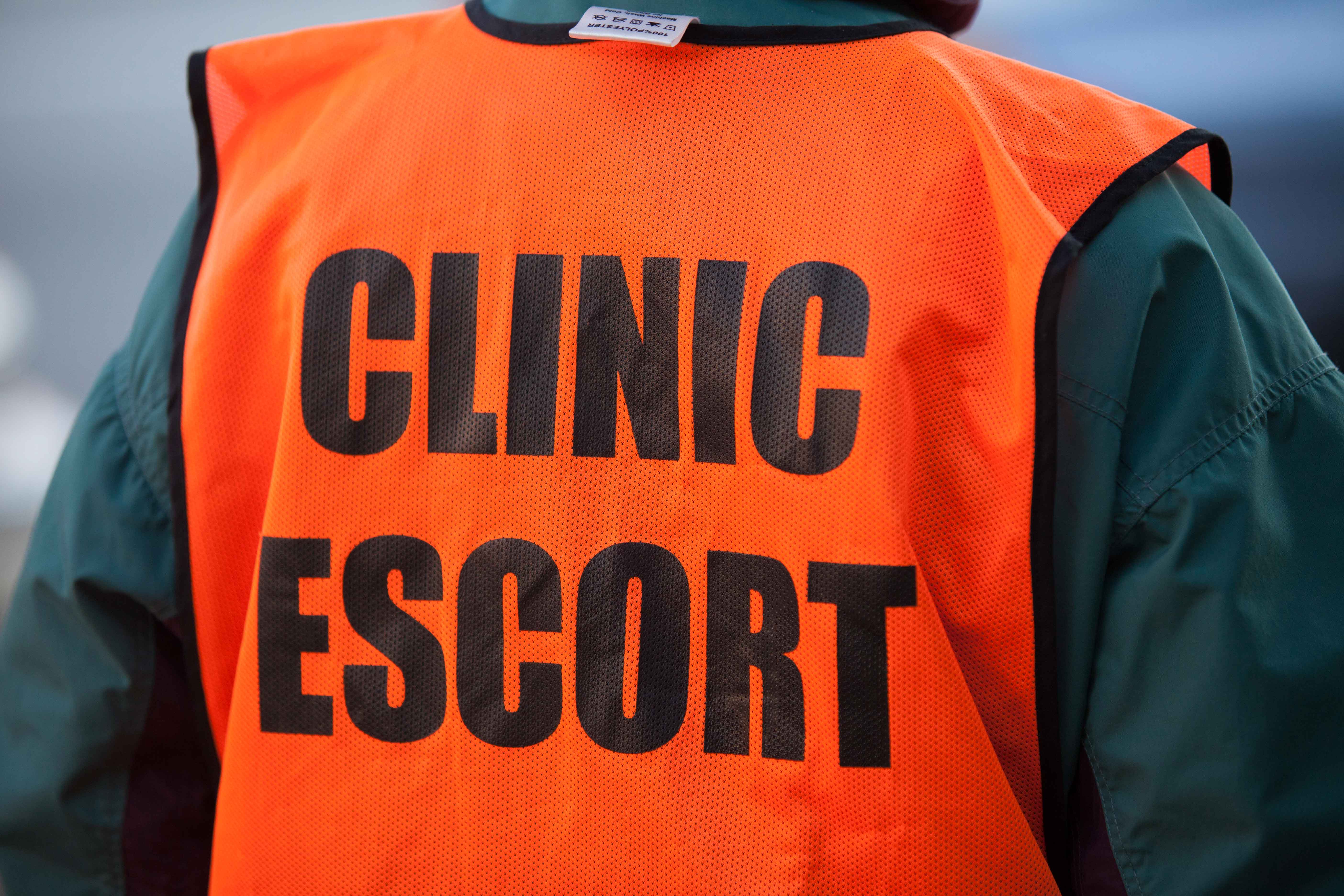In their “Sexual Health + Identity” section, Teen Vogue shares the story of volunteer clinic escort Kara McGinley, who presents the nation’s largest abortion chain, Planned Parenthood, as a place where women go to get “health care.” Pro-lifers who protest and counsel women outside abortion facilities are often peaceful and prayerful, but one would never know that from reading McGinley’s account. Instead she describes them as people who harass, shame, and confuse women. It’s thus McGinley and her crew’s job to ‘protect’ these women from the protesters. She writes:
Protesting is legal. It’s our right as Americans to do so. It’s our Freedom of Speech. But the issue is that most of the clinic protestors cross the line to harass and bully. Our goal is to get the patients in the door safely and block out the protestors and their signs as much as possible. Another tactic is to distract the protestors by interacting with them. If they’re busy arguing with us, they don’t target the patient. It all sounds pretty simple, but it is not that easy.
But anecdotes from McGinley don’t tell the whole story. Pro-lifers are leading efforts to train sidewalk counselors to behave in ways that are not perceived as threatening to women. This summer, Students for Life of America kicked off its first National Pro-life Generation Sidewalk Day, highlighting how peaceful a pro-life presence truly can be. Those peacefully protesting outside abortion clinics have often been met with reported harassment and bullying, like a recent incident in Milwaukee, Wisconsin. It may seem like common sense that these protesters would have a legal right to gather peaceably and speak freely, but state and municipal laws have been passed specifically to silence pro-lifers outside abortion facilities. In 2014, the U.S. Supreme Court stepped in, overturning Massachusetts’ buffer zone law as an unconstitutional restriction on free speech.
Beyond McGinley’s skewed portrayal of pro-lifer protesters, other aspects of the piece are troubling. First, McGinley claims that Planned Parenthood is a necessary organization when it comes to providing legitimate healthcare services, leaving out the fact that Planned Parenthood’s non-abortion services have been declining for years, while abortions and taxpayer dollars to the organization increase:
This is what makes me want to continue clinic escorting. The protestors don’t care if women are there for other reasons, like a pap smear or a checkup, because they believe that if you use the clinic you are supporting it and therefore contributing to the problem. Without these volunteers, women wouldn’t be able to access their healthcare as easily.
Planned Parenthood receives half a billion dollars annually in taxpayer funding (with only around 650 facilities), yet it is vastly outnumbered by Federally Qualified Health Centers (20 to 1), which, despite not providing any potentially morally objectionable services, do not have the luxury of taxpayer dollars. In other words, women have plenty of access to healthcare without Planned Parenthood.
Another troubling aspect of McGinley’s article is the revelation that abortion clinic escorts aren’t so pro-choice after all:
Another longtime escort tells me that “without enough escorts, I have seen protestors bring their signs in the middle of the sidewalk so patients have to walk around them. If protestors can get the patient to stop, the patient becomes a captive audience to listen to them whether the patient wants to or not. Being trapped against the wall, the patient often feels like they have no choice, but to stand and listen until an escort can come and “rescue’ them.”
Are clinic escorts who dissuade patients from listening to pro-lifers really about women having choices, or are they just for one choice — abortion?
McGinley speaks of how she and the other clinic escorts were referred to as “escorts of death,” and how she was asked, “[w]hy do you love death so much, do you know what you’re doing?”
The question is a complicated one. The truth is that clinic escorts are around death. They literally lead women to the death of their preborn child by distracting and dissuading them from talking to those who want to help them and their children. In many cases, these pro-lifers seek to let women know they have other options, directing them to nearby pregnancy centers, which offer material help and support for mothers and children, both before and after birth.
But a consistent pro-life effort not only involves reaching abortion-vulnerable women — it involves helping the abortion clinic workers and escorts, many of whom may not know the extent of what they are doing. For those who have realized they no longer wish to be a part of the abortion industry, there is hope. Abby Johnson, a former Planned Parenthood director, has an organization known as And Then There Were None (ATTWN), which helps those who want to leave the abortion industry.
We hope that people like McGinley will come to the realization of the ways the abortion industry victimizes women and children, and will end their participation in the abortion industry.







